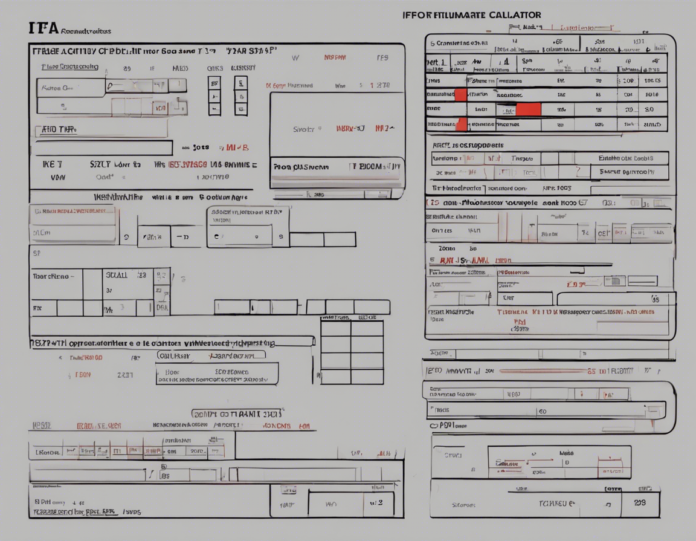As a truck driver or fleet manager, understanding and complying with the International Fuel Tax Agreement (IFTA) is crucial for smooth operations and avoiding penalties. Calculating IFTA manually can be a time-consuming and error-prone process, which is why using an IFTA calculator can greatly simplify the task. In this comprehensive guide, we will discuss everything you need to know about using an IFTA calculator effectively.
What is IFTA?
IFTA is an agreement among U.S. states and Canadian provinces to simplify the reporting of fuel use by motor carriers that operate in multiple jurisdictions. Instead of filing separate fuel tax reports for each state or province, carriers can file a single quarterly return through their base jurisdiction, which then distributes the taxes to the appropriate jurisdictions.
How Does IFTA Work?
Under IFTA, carriers track the number of miles traveled and the amount of fuel purchased in each jurisdiction. They then calculate the fuel tax owed based on the fuel efficiency of their vehicles. The carrier's base jurisdiction is responsible for processing their IFTA returns and distributing the appropriate taxes to other jurisdictions.
Benefits of Using an IFTA Calculator
Using an IFTA calculator offers several benefits, including:
- Time-Saving: Calculating IFTA manually can be labor-intensive and prone to errors. An IFTA calculator automates the process, saving you time and ensuring accuracy.
- Cost-Effective: By reducing the time and effort required to calculate IFTA, an IFTA calculator can help lower administrative costs.
- Compliance: An IFTA calculator helps ensure compliance with reporting requirements, reducing the risk of penalties for miscalculations.
- Data Analysis: Many IFTA calculators offer features for analyzing fuel consumption data, which can help identify trends and optimize fuel efficiency.
How to Use an IFTA Calculator
Using an IFTA calculator is typically straightforward:
- Input Data: Enter information such as miles traveled, fuel purchases, and unit information.
- Select Reporting Period: Choose the quarter for which you are filing.
- Generate Report: The calculator will generate a report detailing your fuel tax liability for that quarter.
Features to Look for in an IFTA Calculator
When choosing an IFTA calculator, consider the following features:
- User-Friendly Interface: Look for a calculator with an intuitive interface that makes data entry easy.
- Automatic Updates: Ensure the calculator stays current with changing tax rates and regulations.
- Reporting Capabilities: Choose a calculator that generates detailed reports for record-keeping and analysis.
- Integration Options: Consider whether the calculator can integrate with other software or systems you use.
Frequently Asked Questions (FAQs)
Q: Can IFTA reports be filed electronically?
A: Yes, many jurisdictions offer online filing options for IFTA reports, which can streamline the process.
Q: How often do I need to file IFTA reports?
A: IFTA reports are filed quarterly, with deadlines falling on the last day of the month following the end of the quarter.
Q: What happens if I don't file my IFTA report on time?
A: Failure to file IFTA reports on time can result in penalties, including fines and interest on overdue taxes.
Q: Do I need to keep records of my fuel purchases and miles driven?
A: Yes, it is essential to maintain detailed records of fuel purchases, odometer readings, and miles traveled in each jurisdiction for IFTA reporting.
Q: Can IFTA calculators handle different types of vehicles, such as trucks and buses?
A: Many IFTA calculators are versatile and can accommodate various types of vehicles, including trucks, buses, and other commercial vehicles.
In conclusion, using an IFTA calculator can be a game-changer for trucking companies looking to streamline their fuel tax reporting processes. By leveraging the benefits of automation and accuracy, you can ensure compliance with IFTA requirements and avoid costly penalties. When choosing an IFTA calculator, prioritize features that align with your specific needs and workflow to maximize efficiency and cost savings.

